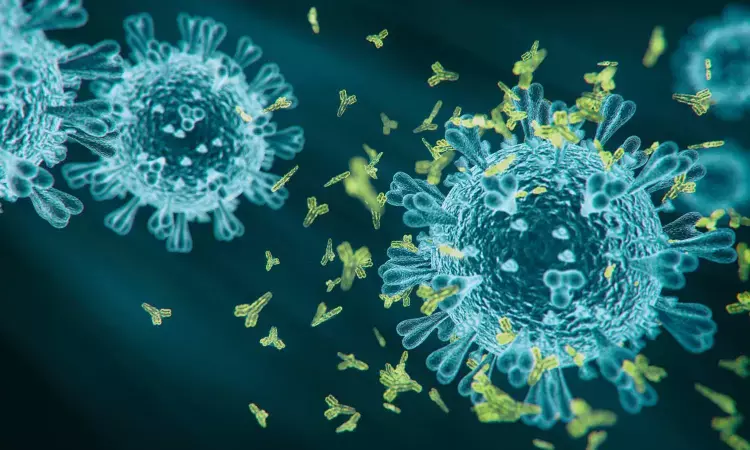- Home
- Medical news & Guidelines
- Anesthesiology
- Cardiology and CTVS
- Critical Care
- Dentistry
- Dermatology
- Diabetes and Endocrinology
- ENT
- Gastroenterology
- Medicine
- Nephrology
- Neurology
- Obstretics-Gynaecology
- Oncology
- Ophthalmology
- Orthopaedics
- Pediatrics-Neonatology
- Psychiatry
- Pulmonology
- Radiology
- Surgery
- Urology
- Laboratory Medicine
- Diet
- Nursing
- Paramedical
- Physiotherapy
- Health news
- Fact Check
- Bone Health Fact Check
- Brain Health Fact Check
- Cancer Related Fact Check
- Child Care Fact Check
- Dental and oral health fact check
- Diabetes and metabolic health fact check
- Diet and Nutrition Fact Check
- Eye and ENT Care Fact Check
- Fitness fact check
- Gut health fact check
- Heart health fact check
- Kidney health fact check
- Medical education fact check
- Men's health fact check
- Respiratory fact check
- Skin and hair care fact check
- Vaccine and Immunization fact check
- Women's health fact check
- AYUSH
- State News
- Andaman and Nicobar Islands
- Andhra Pradesh
- Arunachal Pradesh
- Assam
- Bihar
- Chandigarh
- Chattisgarh
- Dadra and Nagar Haveli
- Daman and Diu
- Delhi
- Goa
- Gujarat
- Haryana
- Himachal Pradesh
- Jammu & Kashmir
- Jharkhand
- Karnataka
- Kerala
- Ladakh
- Lakshadweep
- Madhya Pradesh
- Maharashtra
- Manipur
- Meghalaya
- Mizoram
- Nagaland
- Odisha
- Puducherry
- Punjab
- Rajasthan
- Sikkim
- Tamil Nadu
- Telangana
- Tripura
- Uttar Pradesh
- Uttrakhand
- West Bengal
- Medical Education
- Industry
Treatment with monoclonal antibodies significantly reduces risk of hospitalization and death after COVID-19 diagnosis

USA: Early treatment with monoclonal antibodies (mAbs) among outpatients with COVID-19 may lower the risk of hospitalization or death for various mAb products and SARS-CoV-2 variants, a recent cohort study of more than 2,500 people has shown.
The study, published in Annals of Internal Medicine, found that using monoclonal antibodies to treat COVID-19 within two days of receiving a positive COVID-19 test reduced their risk of hospitalization or death by 39 percent compared to persons who were eligible for monoclonal antibody treatment but did not receive it. Persons with immunocompromising conditions experienced further reduced risk.
The U.S. Food and Drug Administration (FDA) granted emergency use authorization to five different COVID-19 monoclonal antibody treatments at various times between 2020 and 2022. During this time, monoclonal antibody treatments were shown to have reduced COVID-19 viral load and later showed decreased rates of hospitalization and death in some at-risk patients. All five previously authorized treatments have since been suspended or revoked by the FDA based on in vitro evidence of evolving loss of efficacy against new COVID-19 variants. However, these treatments were revoked without randomized trials or real-world data availability.
Researchers from the University of Pittsburgh Medical Center conducted a hypothetical pragmatic randomized trial of 2,571 patients treated with monoclonal antibodies matched with data from 5,135 patients with COVID-19 who were eligible for monoclonal antibodies but did not receive them. The authors found that treatment with monoclonal antibodies within two days of COVID-19 infection was associated with an estimated 39 percent lower risk for hospitalization or death at 28 days.
According to the authors, their results indicate that throughout the pandemic, early treatment with monoclonal antibody treatment significantly reduced the severity of COVID-19. They also emphasize that their findings should be interpreted with the knowledge that there are currently no FDA-approved monoclonal antibody treatments for the treatment of outpatients with COVID-19 and that the rapid evolution of new variants warrants timely, continuous evaluation of both monoclonal antibody and non-monoclonal antibody treatment approaches.
Reference:
Kevin E. Kip, Erin K. McCreary, Kevin Collins, Tami E. Minnier, Graham M. Snyder, William Garrard, Jeffrey C. McKibben, Donald M. Yealy, Christopher W. Seymour, David T. Huang, J. Ryan Bariola, Mark Schmidhofer, Richard J. Wadas, Derek C. Angus, Paula L. Kip, and Oscar C. Marroquin, https://doi.org/10.7326/M22-1286
Dr Kamal Kant Kohli-MBBS, DTCD- a chest specialist with more than 30 years of practice and a flair for writing clinical articles, Dr Kamal Kant Kohli joined Medical Dialogues as a Chief Editor of Medical News. Besides writing articles, as an editor, he proofreads and verifies all the medical content published on Medical Dialogues including those coming from journals, studies,medical conferences,guidelines etc. Email: drkohli@medicaldialogues.in. Contact no. 011-43720751


